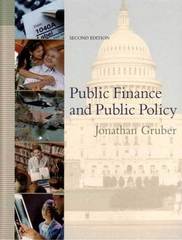Answered step by step
Verified Expert Solution
Question
1 Approved Answer
Can you help me to solve these four questions,thanks Question 13 Not yet answered Marked out of 6.00 Flag question Part C. With the ever-present

Can you help me to solve these four questions,thanks
Question 13 Not yet answered Marked out of 6.00 Flag question Part C. With the ever-present threat of droughts throughout the State, the New South Wales Government needs to consider methods to restrict household water consumption. The Government, thus, is interested in understanding the determinants of household water consumption in the State. They use quarterly data on water consumption cons) and its price (price) from 2009 to 2019. 1. What regression do you need to estimate to test the null hypothesis that there is no linear trend in water consumption during the last 10 years. 2. Your friend argues that water consumption might be higher during summer compared to other seasons. Propose a regression to test your friend's argument. Some econometricians propose the following finite distributed lag model to capture the effect of water price on water consumption: cons, = Bo + a price, + azprice.-1 + azprice. -2 + u, 3. What problems may arise when estimating with OLS a, (j = 1, 2, 3 ) parameters given that you have a time series data? 4. How do these a, (j = 1, 2, 3 ) parameters relate to the long-run propensity (LPR), i.e. the change in the equilibrium value of water consumption (cons) in response to a permanent change in water price (price)? Rewrite the original model to directly estimate the LRP and its standard error. Question 13 Not yet answered Marked out of 6.00 Flag question Part C. With the ever-present threat of droughts throughout the State, the New South Wales Government needs to consider methods to restrict household water consumption. The Government, thus, is interested in understanding the determinants of household water consumption in the State. They use quarterly data on water consumption cons) and its price (price) from 2009 to 2019. 1. What regression do you need to estimate to test the null hypothesis that there is no linear trend in water consumption during the last 10 years. 2. Your friend argues that water consumption might be higher during summer compared to other seasons. Propose a regression to test your friend's argument. Some econometricians propose the following finite distributed lag model to capture the effect of water price on water consumption: cons, = Bo + a price, + azprice.-1 + azprice. -2 + u, 3. What problems may arise when estimating with OLS a, (j = 1, 2, 3 ) parameters given that you have a time series data? 4. How do these a, (j = 1, 2, 3 ) parameters relate to the long-run propensity (LPR), i.e. the change in the equilibrium value of water consumption (cons) in response to a permanent change in water price (price)? Rewrite the original model to directly estimate the LRP and its standard errorStep by Step Solution
There are 3 Steps involved in it
Step: 1

Get Instant Access to Expert-Tailored Solutions
See step-by-step solutions with expert insights and AI powered tools for academic success
Step: 2

Step: 3

Ace Your Homework with AI
Get the answers you need in no time with our AI-driven, step-by-step assistance
Get Started


